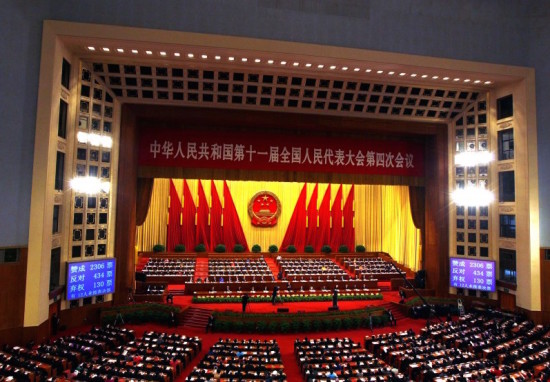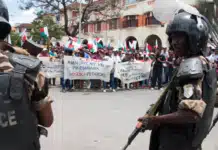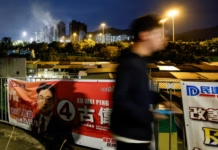A panel of socialists give their views on what’s happening in China
With China’s Lianghui or ‘twin sessions’ – the National People’s Congress (NPC) and Chinese People’s Political Consultative Conference (CPPCC) – underway in Beijing, chinaworker.info asked a panel of socialist activists to explain the trends taking place in China. Vincent Kolo is editor of chinaworker.info, Wang Linyu is a young mainland activist and Jor Yen from Hong Kong is active in Socialist Action and writes for the CWI’s Chinese magazine Socialist.
What is the main conclusion we can draw from the twin sessions of the NPC and CPPCC now meeting in Beijing?
VINCENT: These assemblies are just echo chambers for the decisions already made by the top leadership of the CCP (so-called Communist Party) dictatorship. In recent years the NPC and CPPCC have mainly attracted attention as the world’s leading billionaires’ clubs. This year there are more than 100 billionaires among the delegates. It is reported that the 10 richest delegates in the NPC are currently worth 184 billion US dollars, which is 100 times the wealth of the ten richest US congressmen.
Xi Jinping and the CCP regime are using this year’s meetings to beam a message around the world that the state of the Chinese economy is not as bad as widely believed. In reality, below the surface, the mood is quite desperate. Many sections of the elite, in common with the global capitalists, are extremely worried. Many regions of China are facing severe pressures, with floundering economies and utter confusion over how to carry out the policies decided in Beijing. The regime’s recent steps to further tighten media controls – effectively outlawing bad economic news – is another sign that things are very serious indeed.
YEN: If the meetings show anything it is that the Chinese government cannot offer any real solutions for its economic crisis and the next wave of big attacks on the working class is coming. The announcement of 5-6 million job cuts (reported by Reuters) in the state-owned industrial sector shows this. At the NPC the government promised compensation – a 100 billion yuan ‘resettlement fund’ – for laid-off workers. But the funds are too small to cushion the pain for workers and the affected regions, while local governments are close to bankrupt in many regions. Workers in the affected industries are not getting paid now in many cases, so what guarantees do they have they will receive the ‘resettlement’ payments?
LINYU: The government does not want any controversy – it wants to project unity at the national meetings. But one of the most publicised speeches was by finance minister Lou Jiwei, who launched a big attack on the Labour Contract Law, saying it ‘overprotects’ workers and puts too big a burden on the capitalists. Lou is a spokesman for the capitalists and the most neo-liberal wing of the elite. These groups blame “too rapid wage growth” for the crisis in the Chinese economy. In fact, with the increased costs of housing and other essentials, real wages have barely kept pace. Lou’s comments fit a wider pattern: that massive layoffs and attacks on jobs, wages and workers’ rights are coming.
At the NPC we heard many top officials including Li Keqiang say there will be no “hard landing” in China. What is your view?
VINCENT: The regime is in damage control mode. There has been a succession of speeches by Xi, Li, central bank governor Zhou Xiaochuan, and others to talk-up China’s economy and restore ‘confidence’. This was evident at the G20 finance ministers’ meeting in Shanghai (25-26 February) and it’s continuing at the twin sessions.
The CCP is attempting to regain its footing after a disastrous start to the year, the worst ever for global stock markets including China’s. The Chinese stock market is the world’s second worst performer in 2016 after Greece – and that’s despite the government’s ‘national team’ intervening to prop up the stock market during the NPC and CPPCC meetings, because they don’t want a new stock market rout to spoil things. There are several issues that are a lot more serious. Capital flight at historically unprecedented levels is a much bigger worry for Beijing. A report from Bloomberg Intelligence says 1 trillion US dollars left China in 2015. This reflects a collapse of confidence of the capitalists in the Chinese economy and a search for ‘value’ outside its borders.
LINYU: The regime tries to hide the full extent of the economic problems. They also use grand sounding plans to subdue the mood of crisis. For example, they have identified de-stocking of the big inventory of unsold houses (numbering many millions across China) as a priority in 2016. This is mainly in the 3rd and 4th-tier cities which account for 67 percent of housing construction. This is where the property crash has been most severe. The regime’s solution is moving more migrant workers into these cities as the main way to achieve de-stocking and creating new housing demand. But this idea is widely known as impossible because wages will be reduced further as a result of the slowing economy. Today, in many areas, migrants are leaving the cities because there are no longer any jobs.
A capitalist and former property mogul Ren Zhiqiang may be more “rational” when he says the only way is to demolish those unsold buildings. This is actually happening in some cities. This also shows the contradiction with the government’s reform plans. The majority of working people are on low wages; they lack the spending power to resolve the problems of overcapacity and to turn China into a consumer-driven economy. Without this, the government keeps increasing the debt to avoid the total collapse of the economy, but it will only lead the economy into a prolonged stagnation, such as Japan.
YEN: The stock market crisis last year in June and this year in January already showed that the Chinese government is unable to control the economy. They are trying to avert a hard landing by using stimulus, more credit and loose monetary policies. This means China is more likely to go into a Japanese model of economic crisis: very high debt with slow growth, non-profitable zombie companies, low consumer power as people do not want to spend money. But with China’s political system, this kind of economic crisis will have much more serious social consequences than Japan in the 1990s and 2000s, which can mean a revolutionary mass upheaval.
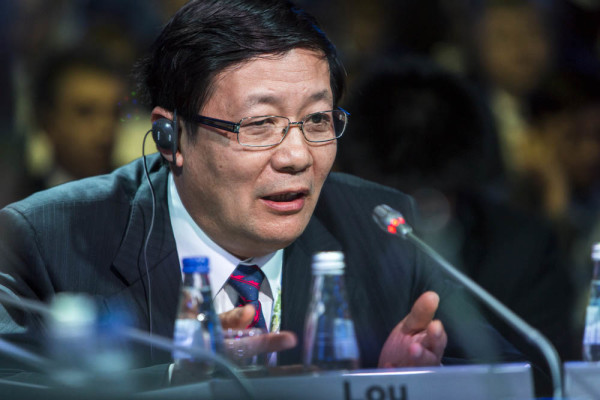
The government is discussing big job cuts in heavy industries like steel and coal mining. How likely are these cutbacks in the short-term and how will workers react?
YEN: There has been increasing numbers of workers’ protests and struggles over the past two years. The number of strikes in 2015 was 2,774 – more than double the level in 2014. Around ninety percent of strikes are about unpaid wages or unpaid pensions. If the CCP really cuts as many workers as the 5-6 million announced recently, the rise of unemployment will cause a social explosion (they don’t have the resources to create new jobs for so many people).
Already, during the time of the NPC meeting, more than ten thousand coal miners and their families in Heilongjiang province have been protesting on the streets. Over 80,000 of these workers have not had their salaries paid for six months. The workers were heavily repressed by police. One of the slogans the workers shouted was “CCP give us back our money”. This shows the consciousness of workers is rising, more and more against the central government and the party, instead of only targeting one boss or the local government officials. These workers are from the Longmay Mining Company, the biggest state-owned coal company in the region, which announced last year that 100,000 coal mining jobs will be cut. The workers have been protesting for months.
VINCENT: The reports of 5 to 6 million redundancies amounts to over 15 percent of the workforce in the state-owned enterprises, which is currently 37 million. The axe is falling in steel and coal, where 1.8 million jobs are being cut according to Social Security Minister Yin Weimin, but also in glassmaking, cement and shipbuilding.
The government wants to stagger the closures and job losses to avoid mass unrest, through a “gradual” process of mergers and consolidation of different companies with excess capacity. But as these incredible protests by coal miners in Shuangyashan (Heilongjiang province) show, workers in the coal and steel industries and other heavy industries are already facing massive cuts and non-payment of wages.
In the case of the Shuangyashan workers, the governor of the province Lu Hao lied during the NPC meeting by saying there were no cases of wage arrears among the miners. He was forced to admit the truth as a result of the mineworkers’ protests. This is a rare example of reality intruding upon the carefully choreographed fantasy world that the top officials are trying to project at the NPC.
Report: Mass protests by coal miners in Heilongjiang province.
The capitalists are more and more worried that Xi Jinping’s promised economic reforms have stalled or even gone backwards. Is this fear justified and, if so, why is this happening?
YEN: Yes, the so-called reforms have stalled and this was always the most likely outcome. The CCP cannot afford an even slower economic growth because it would mean social and political explosions. The 6.5-7 percent growth target as they announced at the NPC meeting is not likely to be achieved. But they are forced to go back to the old road to stimulate the economy with more credit (so that companies can repay the old loans by borrowing new loans). This will continue to increase the debt, especially of the already highly indebted state-owned companies. So the CCP is in a dilemma, as they know that faster economic reforms increase the likelihood of a hard landing. That’s why they are afraid, as every small step of reform must be very carefully carried out to prevent a chain reaction of collapse of companies and financial products.
LINYU: In words, the government continues to adhere to the reform as the way to overcome difficulties it is facing, but their actions will depend on the changing situation including the problem of overproduction and the poor prospects for the economy. They still use the slogan “stabilise growth and promote reform”, while this is becoming more and more of a contradiction. So there are divisions inside the regime. Some insist that only reform can overcome the difficulties, while others believe that the current difficulties result from reform itself.
VINCENT: The capitalists don’t know what they want. This goes for the global economy just as much as for China. From the standpoint of their system, of capitalism, they need Xi to carry out the structural reforms to avert a debt crisis and financial meltdown in China, which would be devastating for global capitalism. But sometimes the ‘cure’ is worse than the disease. The effect of mass plant closures and killing off the ‘zombies’, as they are called, could tip the whole Chinese economy into a recession or hard landing.
Given the international effects already from the slowdown in China, imagine how a Chinese recession would play out. Already we see that China, officially growing at close to 7 percent, has exported economic crises to Brazil, Chile, Canada and the former ‘miracle’ economies in Africa.
I don’t think the Chinese regime has a master plan. I think they are now forced to improvise almost from one week to the next, trying to deal with contending and contradictory pressures. The CCP is pushing the idea of “supply side reforms”, borrowed from Reagan and Thatcher, of tax cuts for businesses, opening the state sector to more private capital and so on. None of this is particularly new. It’s a repackaging of previous reform promises. This is part of Beijing’s effort to convince the capitalists that everything is under control and the reforms are still alive.
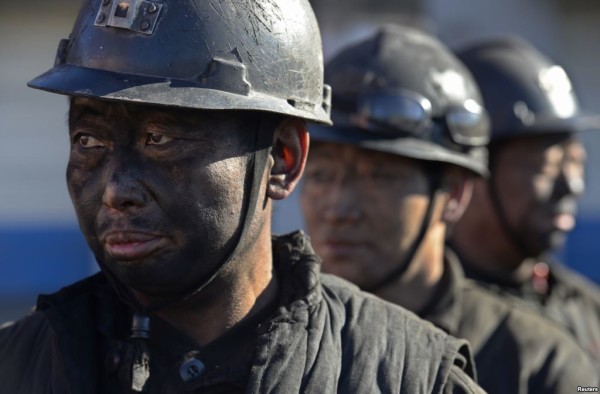
Is the repression and media censorship getting more severe in China?
YEN: Yes. Last year in July over 300 civil rights lawyers were arrested in a coordinated national crackdown. Also, the CCP has ‘globalised’ its attack by arresting people overseas. They kidnapped the five booksellers in Hong Kong and Thailand and forced them to confess on TV. They are also charging arrested dissidents with ‘subversion of state power’, a more serious crime than ‘inciting subversion’ which they used before. This charge means life imprisonment in the worst case.
VINCENT: Under Xi we have seen an unprecedented degree of authoritarian control. Just before the NPC and CPPCC meetings, Xi toured the offices of the national media and read the riot act, ordering them to “love the party and protect the party”. Especially the economic news and data is now being much more closely controlled by Beijing’s censorship machinery. The result will be that even fewer people will believe the official statistics. This is why the business magazine Caixin, which has enjoyed official protection and tolerance in the past, took the unusual step of protesting state censorship last week. They resent the new limits on their powers to report economic affairs. Economic journalism was previously a ‘safe zone’, relatively speaking, allowing more open debate and dissenting views, because of course without that you are going to get even bigger mistakes.
Rather than a mark of strength or confidence, Xi’s policies show the opposite. His elite-level purge and the crackdown on lawyers and NGOs shows a deep-seated fear of political instability. The scramble for top positions is now beginning in the run up to the 19th Congress next year, with Xi wanting to consolidate his support and avoid being checked by rival factions.
Why is this repression happening?
LINYU: Because the regime is facing a sharp economic slowdown and the number of strikes and protests are increasing. Anger against the rich is very widespread in Chinese society now. The CCP must increase repression to prevent workers and the mass of people from organising independent forces. Politically, the regime is unstable and split. When the ruling elite is shown to be openly split it will increase the confidence of the masses to revolt.
YEN: Increasing repression is also a way for Xi Jinping to centralise the power over the army, police and security forces. He wants to increase control over the party-state machinery. Also, the CCP is inciting nationalism to divert the discontent of the masses against other countries. They accuse the NGO activists and civil rights lawyers as “backed by Western forces” so that people should “unite” together to support the Chinese government against Western countries.
VINCENT: The potential for cracks and splits within the state are the main reason for the increased repression. This, and the fear of an upsurge in mass unrest. The regime fears the dam will burst if even the smallest stone is removed – that the pressures that have built up within all levels of society, including within the elite, can explode in uncontrollable conflicts. Of course this is contradictory: the more the regime increases repression, the bigger the eventual explosion. This is similar to its economic policies, which also stoke up bigger problems for the future. But given a choice they prefer to take the crisis later rather than immediately.

